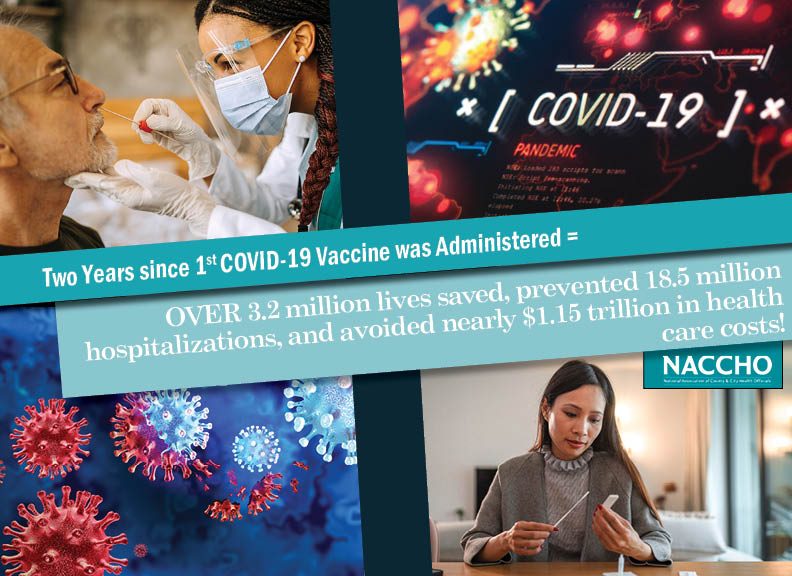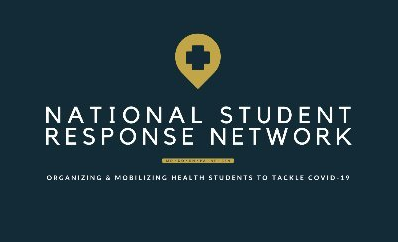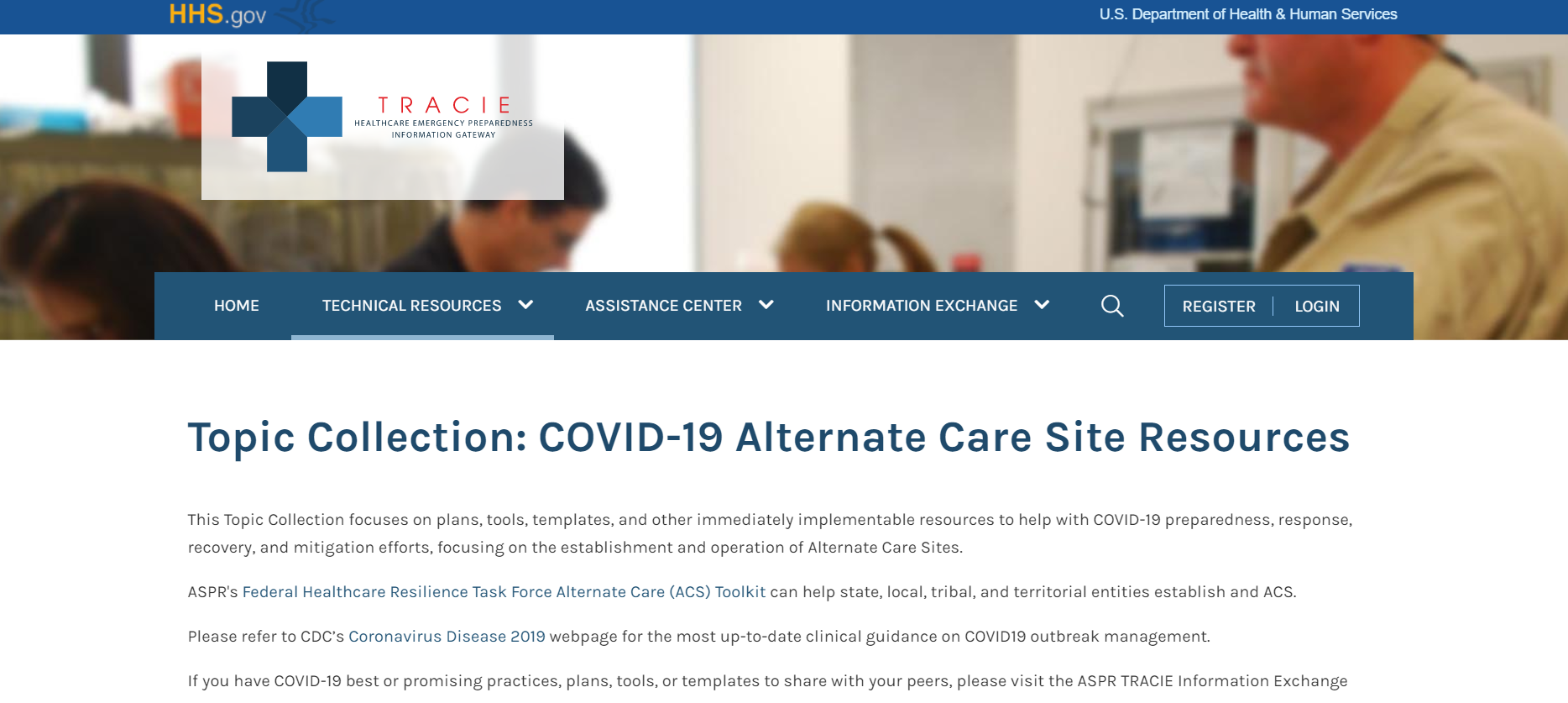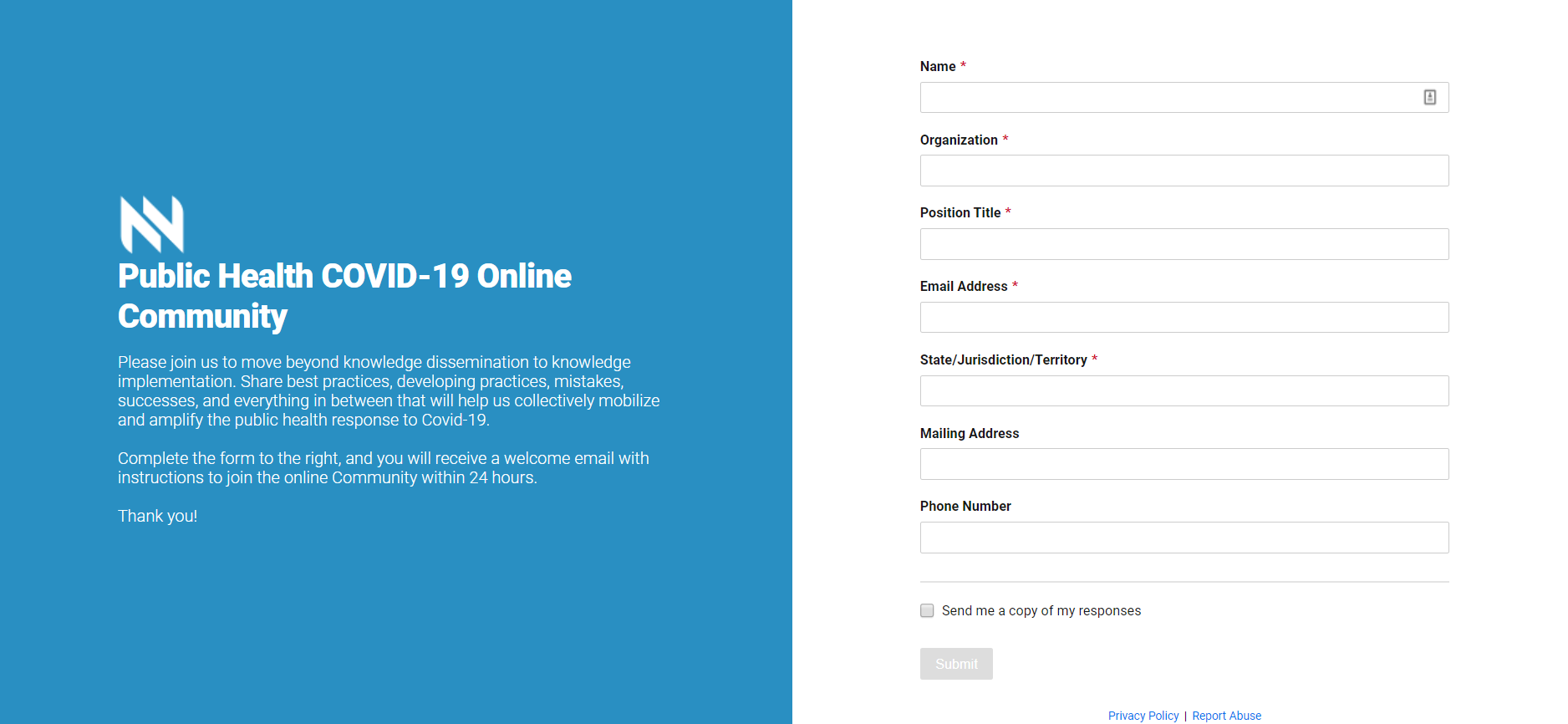Popular Categories
Using MAPP to Improve Community Resilience
Over the past two years, ASPR and NACCHO have been working together to identify and test ways in which local health departments can...
Apr 12, 2016 | Stephen Maheux
NACCHO Releases 2015 Network Profile of the Medical Reserve Corps
On November 2, NACCHO released the 2015 Network Profile of the Medical Reserve Corps report, a comprehensive look at the Medical...
Nov 11, 2015 | Mary Hodges
Save the Date for the 2016 Public Health Informatics Conference!
NACCHO and CDC are pleased to announce that the next Public Health Informatics Conference will take place August 21 – 24, 2016 in...
Sep 16, 2015 | Admin
A Standardized Approach to Risk Communications: Challenges and Developments
By Alexandra Jabs, former Local Public Health Policy & Practice Scholar at NACCHO, and current Master in Public Health candidate...
Jul 15, 2015 | Guest Author
CDC Develops Medical Countermeasure Inventory Data Exchange
By Barbara Nichols, CDC Office of Public Health Scientific Services, Center for Surveillance, Epidemiology and Laboratory Services,...
Jun 11, 2015 | Guest Author
Combatting Antimicrobial Resistance: A Local Report from the Front Line
By Jennifer Gutowski, MPH, CIC, Surveillance Coordinator, Philadelphia Department of Public Health The Philadelphia Department of...
May 27, 2015 | Guest Author
Local Health Department Preparedness and Response to Ebola in the United States
Local health departments are playing a leading role in response to potential Ebola cases in the United States. They are working with...
Apr 01, 2015 | Guest Author
Fighting the Measles Resurgence in the United States
The United States has recently seen a resurgence in measles disease. This is due in part to misinformation about the safety of...
Feb 25, 2015 | Guest Author
Strengthening Public Health at Its Core: A Focus on Disease Intervention Specialists
Disease Intervention Specialists (DIS) work in communities throughout the United States and the U.S. territories to protect the...
Feb 19, 2015 | Guest Author
Using MAPP to Improve Community ResilienceOver the past two years, ASPR and NACCHO have been working together to identify and test ways in which local health departments can improve resilience in their communities. In March 2015, three local health departments were selected as test sites for a pilot program designed to test whether “Mobilizing for Action through Planning and Partnerships” (MAPP) […] Apr 12, 2016 | Stephen Maheux |
NACCHO Releases 2015 Network Profile of the Medical Reserve CorpsOn November 2, NACCHO released the 2015 Network Profile of the Medical Reserve Corps report, a comprehensive look at the Medical Reserve Corps (MRC) network. The Medical Reserve Corps is a national network of more than 200,000 local volunteers dedicated to the safety, preparedness, and health of their communities. The MRC was created after the […] Nov 11, 2015 | Mary Hodges |
Save the Date for the 2016 Public Health Informatics Conference!NACCHO and CDC are pleased to announce that the next Public Health Informatics Conference will take place August 21 – 24, 2016 in Atlanta. The Public Health Informatics Conference provides a forum for new and seasoned public health, healthcare, and information technology professionals to exchange experiences, ideas, and strategies about public health informatics that are paramount […] Sep 16, 2015 | Admin |
A Standardized Approach to Risk Communications: Challenges and DevelopmentsBy Alexandra Jabs, former Local Public Health Policy & Practice Scholar at NACCHO, and current Master in Public Health candidate at Johns Hopkins University Bloomberg School of Public Health and Juris Doctor candidate at the University of Maryland Francis King Carey School of Law Coordinated risk communication efforts are essential during all stages of emergency response […] Jul 15, 2015 | Guest Author |
CDC Develops Medical Countermeasure Inventory Data ExchangeBy Barbara Nichols, CDC Office of Public Health Scientific Services, Center for Surveillance, Epidemiology and Laboratory Services, Division of Health Informatics and Surveillance; and Benjamin Erickson, CDC Office of Public Health Preparedness and Response, Division of Strategic National Stockpile In response to inventory and tracking needs identified during the 2009 H1N1 Influenza pandemic, the... Jun 11, 2015 | Guest Author |
Combatting Antimicrobial Resistance: A Local Report from the Front LineBy Jennifer Gutowski, MPH, CIC, Surveillance Coordinator, Philadelphia Department of Public Health The Philadelphia Department of Public Health (PDPH) promotes and protects the health of 1.5 million residents of Philadelphia, in part through surveillance of over 70 communicable diseases and conditions. Of these diseases, few are considered healthcare associated and traditionally, outside of... May 27, 2015 | Guest Author |
Local Health Department Preparedness and Response to Ebola in the United StatesLocal health departments are playing a leading role in response to potential Ebola cases in the United States. They are working with state and federal counterparts and local stakeholders including hospitals, law enforcement, and emergency medical systems. Their goal is to ensure that individuals at risk for Ebola are monitored according to CDC guidance and symptomatic individuals are quickly... Apr 01, 2015 | Guest Author |
Fighting the Measles Resurgence in the United StatesThe United States has recently seen a resurgence in measles disease. This is due in part to misinformation about the safety of vaccines in general and the measles, mumps, and rubella (MMR) vaccine in particular. The resulting vaccine hesitancy has led to lower immunization rates, with individuals at higher risk of disease and populations at higher risk of outbreaks. Feb 25, 2015 | Guest Author |
Strengthening Public Health at Its Core: A Focus on Disease Intervention SpecialistsDisease Intervention Specialists (DIS) work in communities throughout the United States and the U.S. territories to protect the public’s health. Originally established to work in the field of STD prevention, DIS have ground-level investigative skills that have become key components of tuberculosis outbreak response, HIV exposure notification, other infectious disease control efforts, and... Feb 19, 2015 | Guest Author |
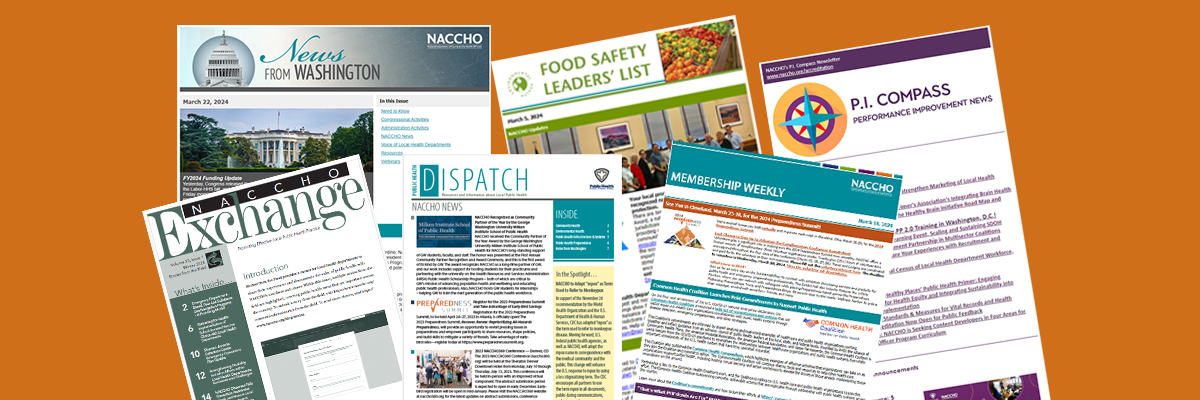
Subscribe Today
Sign Up for the E-mail Digests
Create an account or login to MyNACCHO and go to "My Subscriptions."
SUBSCRIBE NOW